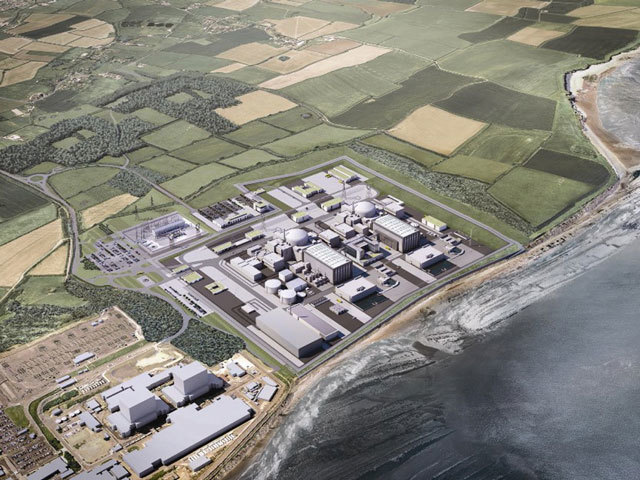
The price the Government will have to pay EDF for generating energy from the new Hinkley nuclear power station will rise to nearly £30 billion, a spending watchdog has estimated.
As part of the 35-year deal signed with the French energy giant in 2013 to build the £18 billion plant in Somerset, the Government promised to pay £92.50 for each megawatt hour of energy it generates.
Wholesale energy prices have fallen since that deal – known as a contract for difference – was made, and it means that the Government has to top up the discrepancy.
The National Audit Office said it had estimated that future top-up payments would rise from £6.1 billion to £29.7 billion over the life of the project since the contract was first agreed.
The report comes less than a week after an Infrastructure and Projects Authority assessment published by the Department of Energy and Climate Change (DECC) put the potential cost of Hinkley at £37 billion.
DECC insisted that the revised estimate would not result in higher bills for taxpayers, and said that the cost would remain at £10 on every energy bill.
A spokeswoman said the agreed strike price would protect consumers from volatile wholesale prices in the energy market.
“Nuclear is not just a nice thing to have. It is an essential part of our plan for a 21st century energy system that will power homes and businesses with reliable, low carbon electricity,” she said.
“Hinkley will generate enough low carbon electricity to power six million homes and around £10 from consumer bills will pay for it once it is up and running.”
DECC said the cost of building Hinkley was not rising, and the changes in projected costs were to do with fluctuating energy prices, which if they were high would mean the Government received money back.
The National Audit Office report examined how DECC was encouraging investment in nuclear power and the associated financial risks.
“Progress in encouraging investment in new nuclear power stations has been slower than for other low-carbon technologies,” it said.
“The deal to build Hinkley Point C is the most advanced nuclear project as it is the only one with development consent, a site licence and regulatory approval.
“However, EDF’s final investment decision has been subject to ongoing delays and it is still uncertain when EDF will begin constructing the facility.”
The National Audit Office said that since 2012 DECC had revised downwards its projections of future wholesale electricity prices, mainly because of a global reduction in the prices of fossil fuels.
“While a contract for difference reduces the risk to consumers of market price volatility, they also mean consumers benefit less from wholesale price falls, which are offset by increased top-
up payments,” it said.
“The present value of future top-up payments through existing contracts for difference has increased by £5.6 billion in the 2015-16 financial year because of lower projected wholesale electricity prices.
“We estimate that future top-up payments through the Hinkley Point C contract for difference have increased from £6.1 billion to £29.7 billion since the Department for Energy and Climate Change and EDF agreed the strike price in 2013.”
It added: “Supporting early new nuclear projects could lead to higher costs in the short-term than continuing to support wind and solar.
“The cost competitiveness of nuclear power is weakening as wind and solar become more established.
“The decision to proceed with support for nuclear power therefore relies more on strategic than financial grounds: nuclear power is needed in the supply mix to complement the intermittent
nature of wind and solar.”
Only last week EDF reiterated support for Hinkley after meeting with unions in France to discuss the project.
UK unions have stepped up their support, saying that confirming the financial go-ahead will be the first big “litmus test” for infrastructure projects following the EU referendum result.
Recommended for you
